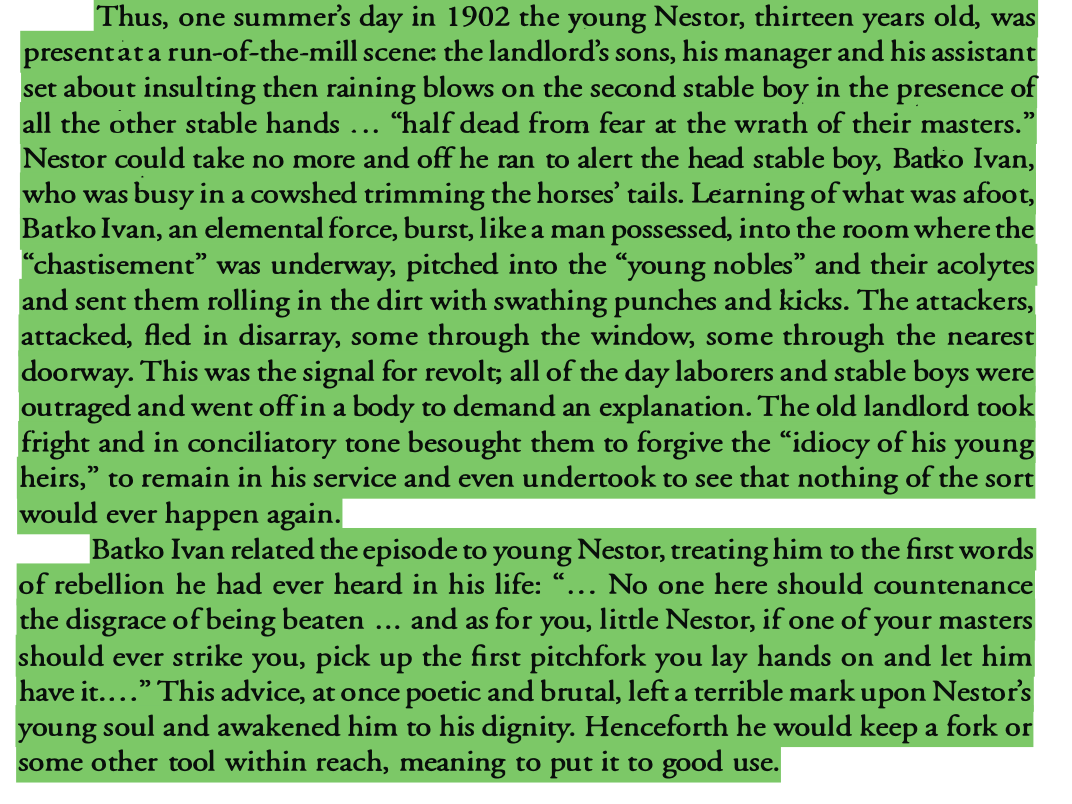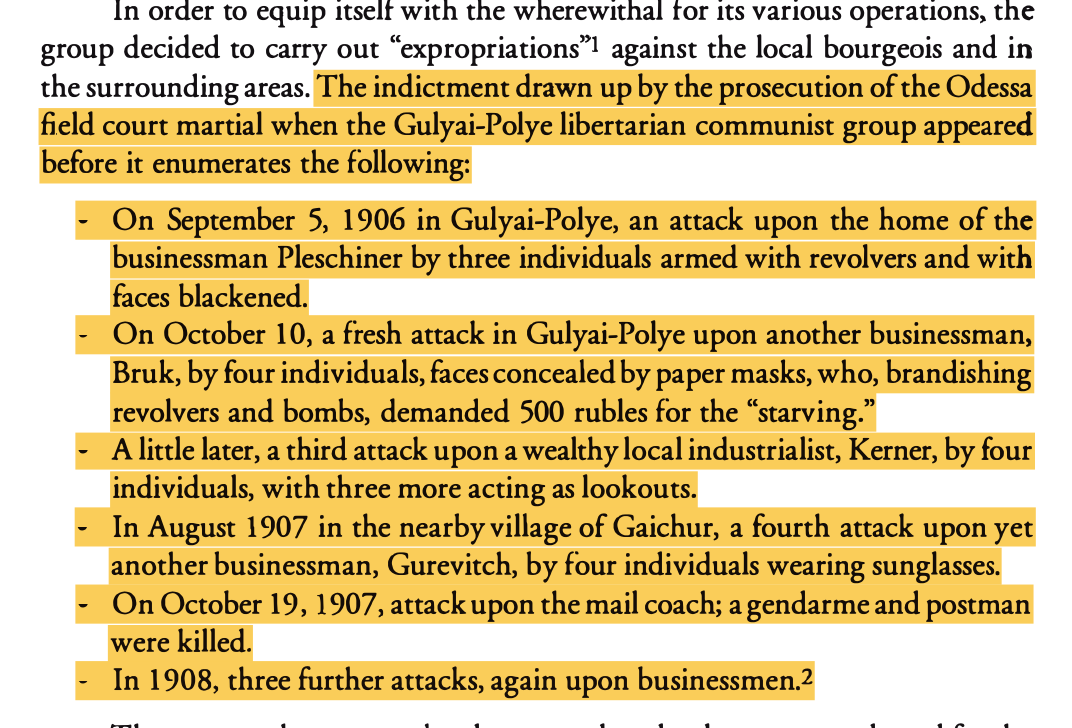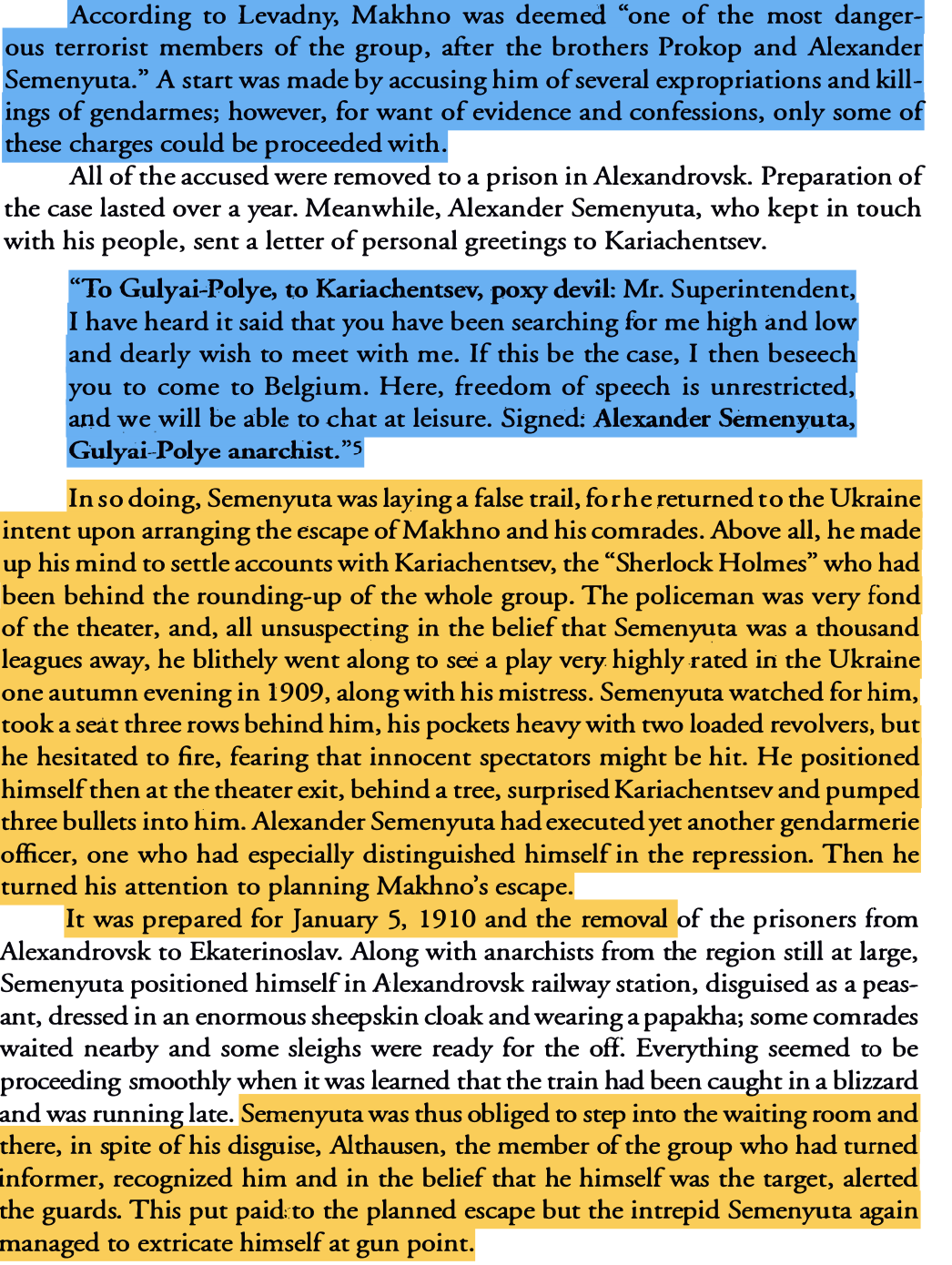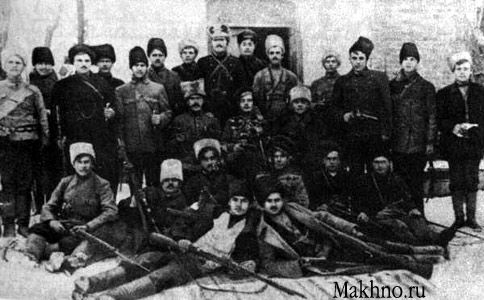This is part two of a seven part series on the Ukrainian anarchist Nestor Ivanovich Makhno. If you want to get some context from the time of Catherine the Great (and her en-serfment policies), the dissolution of the Hetmanate and Crimean Khanate and Pugachev's uprising against Catherine the Great, click here. Or if you like to live dangerously, and fly without instruments or context, continue on ahead without clicking a single link. I dare you.
For a brief history of the Russia Civil War through music click here.
For my previous work on the callous and comically incompetent reign of Alexander Kolchak during the Russian Civil War in Siberia click here.
Without further ado, let's meet the man himself, Nestor Ivanovich Makhno and explore his troubled childhood, complex relationships with the Mennonites of Ukraine and why he and Oscar Wilde never seem to be in the same room at the same time.
A word before getting into sources used for this story. It's a short list, because while it takes up the greatest amount of time chronologically, I've had to trim the most amount of discrete events to fit it into a fifteen minute video. This will be a theme throughout these stories--choosing what to cut out, what to abridge or take as going without saying in the life of a revolutionary. The demands of telling a coherent story and telling a complete history are different beasts indeed, not even in the same clade let alone species. So, I've tried to stick to historical fact, while getting to the core of the story of Nestor Ivanovich Makhno, given my self-imposed limits.
On a related point, all historical texts, in one way or another, are political documents, or documents that can be analyzed politically. There is a tendency--partly because of the intense Bolshevik attempt to demonize or erase the Makhnovschina [Time of Makhno] from the history books--for historians or anarchists to idealize the period and the man at the center of the movement. This tendency is not wrong, it is a very human thing to do, but not to acknowledge that Makhno's Black Army was responsible for atrocities in its time is to insult the dead and peddle history in bad faith. Or to borrow the words of Patterson:
"It is not surprising that, outside of Mennonite scholarship, these sources have rarely been examined. Many anarchist and non-Mennonite scholars are quite sympathetic to the Maknovist perspective. Historian Alexandre Skirda, for example, writes that he is pleased with the efforts to 'rehabilitate in academic circles Makhno and the Ukrainian insurgent movement.' According to Skirda, the most important objective is to 'make the experience of the Ukrainian libertarian communists known to a wider public and to extract from it lessons of use to the contemporary revolutionary project.'
The problem with such ideologically driven histories, inside or outside of academia, often ignore the mass of Mennonite sources that do not conform to personal politics. That said, Mennonite sources, similar to the Makhnovist sources, are perspectival and should be approached with care. Any fair assessment of the Makhnovschina [Time of Makhno] must therefore acknowledge both its constructive aspirations and destructive aspects. Only then can a more comprehensive multi-perspective history of the movement be achieved."
Anyway, with all that serving as a caveat, let us get into our sources. It will be short, I only decided to use two for this segment of Makhno's life. The two source's writers could not come from more different backgrounds or times--Skirda was a passionate anarchist historian who published his work on Makhno in 1984, and Patterson is a doctoral student at the University of Alberta who put his work on Makhno and the Mennonites into public circulation in 2019. Let us deal with Patterson's work first.
Episode 2 Sources:
Sean Patterson: Makhno and Memory: Anarchist and Mennonite Portraits of Ukraine’s Civil War.
Patterson is an excellent writer with a distinctive voice. He focuses mostly on the interaction (substantial interaction) between Makhno and the Mennonites--good, bad and in-between. Like a good historian, this also serves as a history of the Mennonites in the Ukraine and their diaspora during the Russian Civil War. Most importantly, Patterson uses sources that are traditionally neglected by other biographies of Makhno (like Skirda's work, or people who knew Makhno only as a military figure and not as a young man like Volin, Arshinov and Belash).
It is from Patterson that I lifted the oral tale of Old Lady Kolesnik--a Ukrainian source. I know, I said Ukrainian Mennonite in the video, but I got a few key details wrong in my excitement such as who the passing person in the carriage was (the landowner). I was lucky enough to exchange emails with Mr. Patterson, who kindly corrected me on these essential details.
Regardless, the story helps build out the world that Nestor would have run around in better than the standard stories of abuse and rebellion which tend to make Nestor a shade above human, bordering on a saint. More to the point, it doesn't contradict anything Nestor Makhno himself wrote about his childhood, and so I used to to try and create the kernel of tension necessary to tell the story.
Compare the Old Lady Kolesnik story to the passage that Skirda uses to describe the first moments rebellion flared in Nestor's heart.

Skirda's version is based on Makhno's autobiography (Makhno had many talents, but his writing can be stiff). It's a thing that certainly happened, and is very Hollywood in its presentation--but for the story--and the message that the world Nestor grew up was complicated AND unfair, I chose not to use it in my talk.
I don't mean to give the impression I'm dunking on Skirda here. He was an excellent historian. Anarchy's Cossack is invaluable, besides the autobiography of Makhno, for the early life of Nestor. It also gives a very in-depth look at his criminal activities--most of which I had to skip over for time, and if I counted every time Makhno was robbing a place or languishing in prison or on the run from the police this series would be 1000 parts instead of seven. So I had to cut a lot for narrative flow, but this quote below from Skirda might give you a sense of what Makhno's rap sheet was like.

And what sort of anarchist would I be if I didn't provide a link to the source material in free .pdf form?
Lastly, Skirda is the best source for the assassination of the police superintendent, Kariachentsev, as shown below.

This is an interesting passage for a lot of reasons, but the one I'd like to draw attention to is that Semenyuta, who Makhno looked up to, was loathe to fire his revolvers in a public theater. Skirda interprets this as him not wanting to hit innocent people in his quest for vengeance, but this concern for civilian life was not a good feature for a revolutionary. I could speculate that this--coupled with Makhno's firm sense of right and wrong, idealism, was an influence on young Nestor.
That's all for today--be sure to tune in next week, and subscribe below if you can!
Here's my Q and A with Sewer Rats where we discuss historical turduckens, the psychology of young Makhno and what color cat Admiral Kolchak had.
World History With Charlie, Nestor Makhno Episodes 1 & 2 Talk backFeel free to post your questions here in the comments section!
Posted by Sewer Rats Productions on Thursday, August 20, 2020
